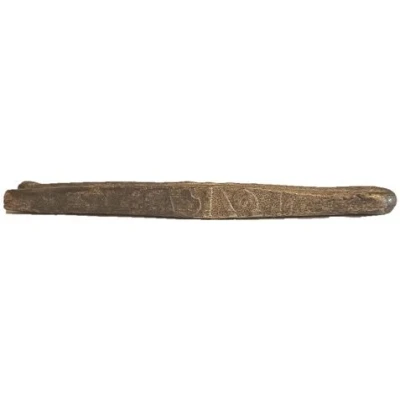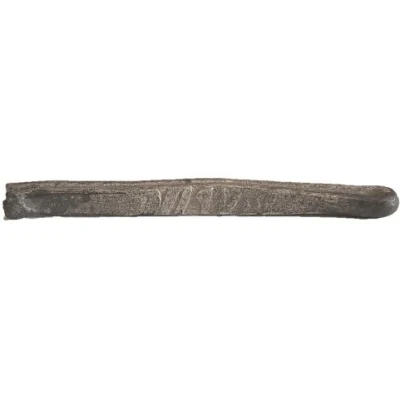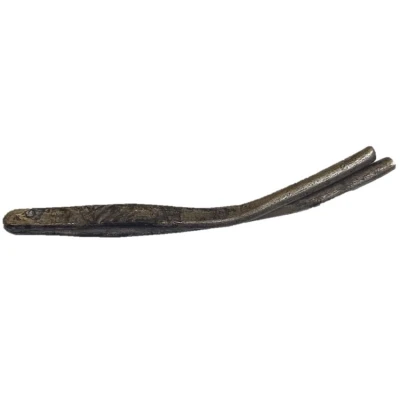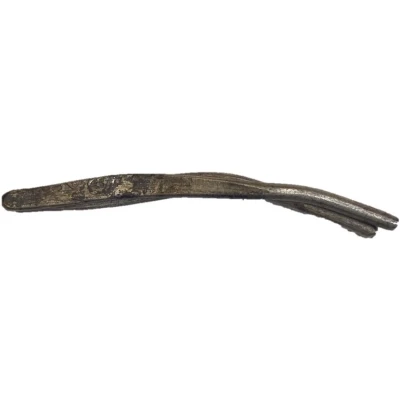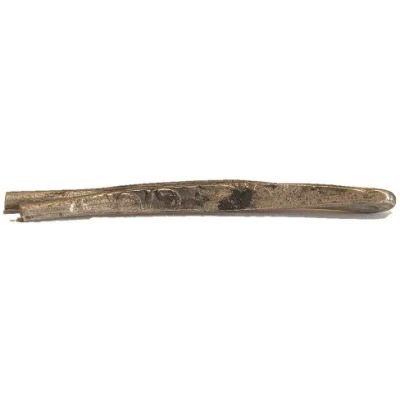
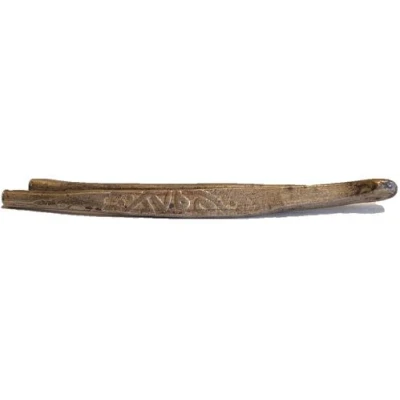

© michaeltalbot
Larin - Murad III
982 (1574) year| Silver | 4.81 g | - |
| Issuer | Basra Eyalet (Iraq) |
|---|---|
| Sultan | Murad III (1574-1595) |
| Type | Standard circulation coin |
| Year | 982 (1574) |
| Calendar | Islamic (Hijri) |
| Value | Larin |
| Currency | Akçe (1535-1688) |
| Composition | Silver |
| Weight | 4.81 g |
| Size | 55 mm |
| Shape | Other |
| Orientation | Variable alignment ↺ |
| Demonetized | Yes |
| Updated | 2024-10-05 |
| Numista | N#379444 |
|---|---|
| Rarity index | 97% |
Reverse
Impression from a round şahi coin. Only a few letters are visible on the few known examples.
Script: Arabic
Lettering: [...] ٩٨٢
Translation: [...] 982
Edge
Hairpin larin
Comment
There are very few examples of Murad III's larins. They were clearly made by using the dies of round şahi coins, meaning that the legend is always fragmentary. Şevket Pamuk has uncovered archival documents indicating that Ottoman larin production was at its height in the 1560s and 1570s, which overlaps with the beginning of Murad III's reign. This type is still little understood and further research into Otoman larins, and the Ottoman coinage of Basra more generally, is needed.Interesting fact
One interesting fact about the Larin - Murad III 982 (1574) coin from Basra Eyalet (Iraq) is that it features a unique blend of Islamic and Mongolian influences in its design. The coin's obverse side features the name of the Mongolian emperor, Murad III, in Persian script, while the reverse side features a stylized representation of the Islamic crescent moon and star. This blending of cultural influences reflects the complex history of the region during the 16th century, when the Mongolian Empire was expanding its territories and interacting with local populations.
